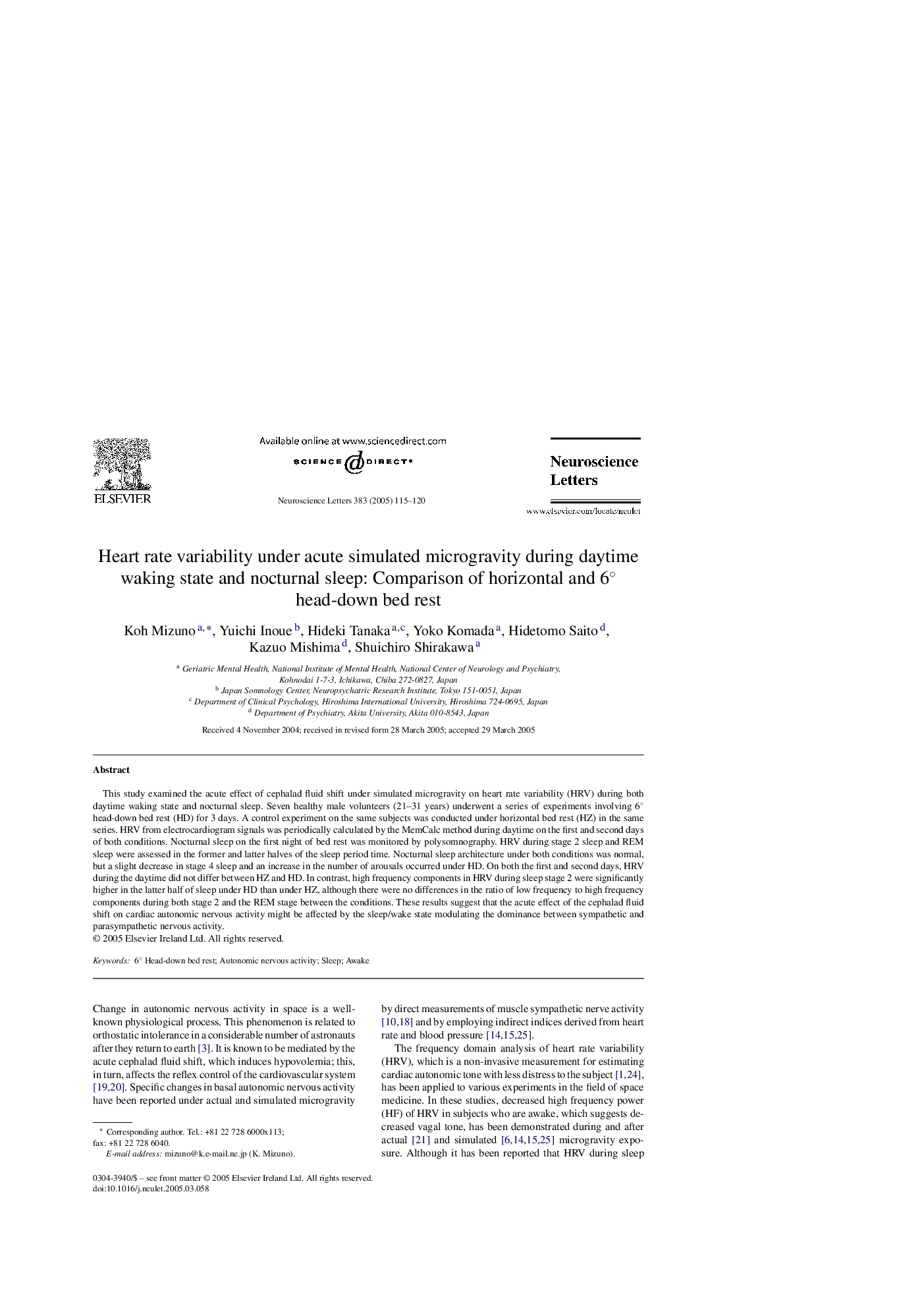| Article ID | Journal | Published Year | Pages | File Type |
|---|---|---|---|---|
| 9429205 | Neuroscience Letters | 2005 | 6 Pages |
Abstract
This study examined the acute effect of cephalad fluid shift under simulated microgravity on heart rate variability (HRV) during both daytime waking state and nocturnal sleep. Seven healthy male volunteers (21-31 years) underwent a series of experiments involving 6° head-down bed rest (HD) for 3 days. A control experiment on the same subjects was conducted under horizontal bed rest (HZ) in the same series. HRV from electrocardiogram signals was periodically calculated by the MemCalc method during daytime on the first and second days of both conditions. Nocturnal sleep on the first night of bed rest was monitored by polysomnography. HRV during stage 2 sleep and REM sleep were assessed in the former and latter halves of the sleep period time. Nocturnal sleep architecture under both conditions was normal, but a slight decrease in stage 4 sleep and an increase in the number of arousals occurred under HD. On both the first and second days, HRV during the daytime did not differ between HZ and HD. In contrast, high frequency components in HRV during sleep stage 2 were significantly higher in the latter half of sleep under HD than under HZ, although there were no differences in the ratio of low frequency to high frequency components during both stage 2 and the REM stage between the conditions. These results suggest that the acute effect of the cephalad fluid shift on cardiac autonomic nervous activity might be affected by the sleep/wake state modulating the dominance between sympathetic and parasympathetic nervous activity.
Keywords
Related Topics
Life Sciences
Neuroscience
Neuroscience (General)
Authors
Koh Mizuno, Yuichi Inoue, Hideki Tanaka, Yoko Komada, Hidetomo Saito, Kazuo Mishima, Shuichiro Shirakawa,
